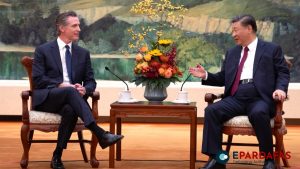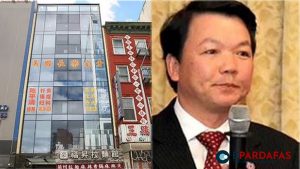
12 Chinese Academicians Pass Away in Early 2024

In just over three months of 2024 so far, China has reported the death of at least 12 academicians due to illness. They include Li Junxian, a rocket fuel expert, Professor Yang Shie from Harbin Engineering University, and Sheng Zhiyong, the former deputy director of Hospital 304.
Also included are Zhu Nenghong, chief engineer of the Shanghai Observatory; Gu Xinyi, an expert on oil and mining machinery at the Shengli oil field, both of whom were involved in defaming Falun Gong; and Joseph Lau Wan-yee, a liver transplant expert who had close ties to many Chinese hospitals and doctors suspected of harvesting organs from Falun Gong practitioners alive.
Forerunners in Respective Fields
Ji Liangnian, an inorganic chemist, Chinese Academy of Sciences (CAS) academician, and Sun Yat-sen University professor, passed away on April 2 in Guangzhou due to illness.
Mr. Ji was born in 1934. In 1989, he was elected a Fellow of the Royal Society of Chemistry and granted the title of Chartered Chemist. In 2003, he was elected an academician of the CAS. Mr. Ji had long been engaged in research in coordination chemistry and bioinorganic chemistry, winning numerous national and provincial-level science and technology awards. The official obituary praised him for providing a theoretical lead for the industrialization of China’s green petroleum products.
Li Junxian, an academician of the Chinese Academy of Engineering (CAE), an expert in chemical synthesis, and the former director and chief engineer of Liming Chemical Research and Design Institute Co., Ltd., passed away due to sudden heart failure on March 20.
The official obituary praised him as a pioneer in the field of high-performance fuels for Chinese rockets and a founder of the polyurethane industry.
Born in March 1928, Mr. Li was long engaged in the research of high-performance fuels and polyurethanes, having led the development of more than 60 types of solid and liquid high-performance fuels, which were successfully used in over 50 types of weapons and key national projects.
He received two National Science Conference Awards, two National Science and Technology Progress Award, and one National Invention Award, and was also honored as a “National Excellent Communist Party Member.”
Sun Jun, an academician of the Chinese Academy of Sciences, geotechnical and underground engineering expert, and professor at Tongji University, passed away on March 1 at Zhongshan Hospital in Shanghai due to illness.
Born in 1926, Mr. Sun was the head of the Department of Structural Engineering at Tongji University, the convenor of the Civil Engineering Discussion Group of the Academic Degrees Committee of the State Council, and the convenor of the Civil Engineering Discussion Group of the National Natural Science Foundation of China. He was elected as an academician in 1991.
In 1960, he established the first tunnel and underground construction engineering program in China at Tongji University.
Mr. Sun participated in a large number of major national engineering projects, including the Three Gorges Water Conservancy Project, Qinling Highway Tunnel, Jiangyin and Runyang Yangtze River Bridges, Sutong Yangtze River Bridge, and the Shanghai Underground Railway Project. He won numerous awards at the national and provincial levels.
Yang Shie, an academician of the CAE and a professor of Underwater Acoustic Engineering at Harbin Engineering University, passed away on March 19 due to illness in Harbin.
Born on Aug. 9, 1931, Mr. Yang served as the vice president of Harbin Shipbuilding Engineering Institute from 1982 to 1987 and was elected as an academician of the CAE in 1995.
The official obituary honored him as “an outstanding member of the Chinese Communist Party,” a founder of the underwater acoustic engineering discipline in China, and one of the pioneers of the underwater acoustic technology industry.
His work, which established the CCP’s first comprehensive underwater acoustic engineering specialty, spanned pioneering research in underwater acoustic channels, sonar systems, and deep-sea acoustic positioning, contributing to significant marine equipment innovations. His leadership in developing critical measurement systems for CCP’s missile tests and organizing the first major deep-sea acoustic survey in the South China Sea earned him two National Science and Technology Progress Awards.
Two Involved in the Persecution of Falun Gong
Zhu Nenghong, an academician of the Chinese Academy of Engineering, an expert in astronomical and optical telescopes, and the chief engineer and former deputy director of the Shanghai Observatory of the Chinese Academy of Sciences died on March 8 in Shanghai due to illness.
The official obituary described him as an “outstanding member of the Chinese Communist Party.”
Born in November 1939, Mr. Zhu was responsible for the design and development of China’s first astrometric telescope with the largest aperture of 1.56 meters. He has also developed a large number of astronomical and optical observation equipment, such as the first two-speed lunar camera and the vacuum photographic zenith tube. He was awarded a number of scientific and technological prizes at the national, provincial, and ministerial levels, and became an academician in May 1995.
Mr. Zhu was once the chairman of the so-called Anti-Cult Association of Shanghai, and in this capacity, he blatantly demonized and vilified Falun Gong.
Gu Xinyi, an expert in petroleum and mining machinery, and former chief expert of SINOPEC’s Shengli oil field, died on Jan. 2 in Jinan City, Shandong Province, following an illness. The official obituary described him as “an outstanding member of the CCP.”
Born in 1937, Mr. Gu worked at Shengli Oilfield since 1961. He was elected an academician of the CAE in 1995, and served as a member of the 9th and 10th National Committees of the Chinese People’s Political Consultative Conference (CPPCC).
The Shengli Oilfield’s Anti-Cult Association was founded on March 20, 2001, and has engaged in a series of activities to slander and persecute Falun Gong. Mr. Gu is one of the main initiators and one of the main leaders of the organization.
Falun Gong, also known as Falun Dafa, was introduced to the public in 1992 by Mr. Li Hongzhi. The spiritual practice is based on the guiding principles of truthfulness, compassion, and forbearance, which teach practitioners to be good people and strive to become better.
The CCP began a full-scale persecution of Falun Gong in July 1999. In the past 20-plus years, Falun Gong practitioners all over the world have been resisting persecution, and at the same time, the practice has spread all over the world. Today, Falun Gong is practiced in over 100 countries around the globe.
Hong Kong Surgeon with Close Ties to Organ Harvesting Suspects
Hepatobiliary and Pancreatic Surgery specialist, Joseph Lau Wan-yee, 76, passed away on Feb. 7 due to illness.
Mr. Lau was the Chairman of the Hong Kong College of Surgeons, Chairman of the Department of Surgery of the Chinese University of Hong Kong, and Chairman of the Medical Council of Hong Kong. He was an Honorary or Visiting Professor at 18 universities or hospitals in Mainland China and also held visiting or guest professorships at various universities in Sweden, Australia, the United States, Denmark, and the United Kingdom.
He was elected as an Academician of the CAS in 2003 and was a member of the CPPCC of Foshan, Guangdong Province. Mr. Lau was one of the founders of liver transplantation in Hong Kong and Southeast Asia. He was an honorary professor at the General Hospital of the Chinese Communist Army (301 Hospital) and honorary director of the Military Institute of Liver and Gallbladder Surgery at the Southwest Hospital of the Third Military Medical University, where he was closely associated with many hospitals and doctors in Mainland China suspected of live organ harvesting.
In 2022, at least 62 academicians in China died of illness, and in 2023, China lost at least 55 academicians. Of the 117 deaths in those two years, 95 were CCP members.












Comments